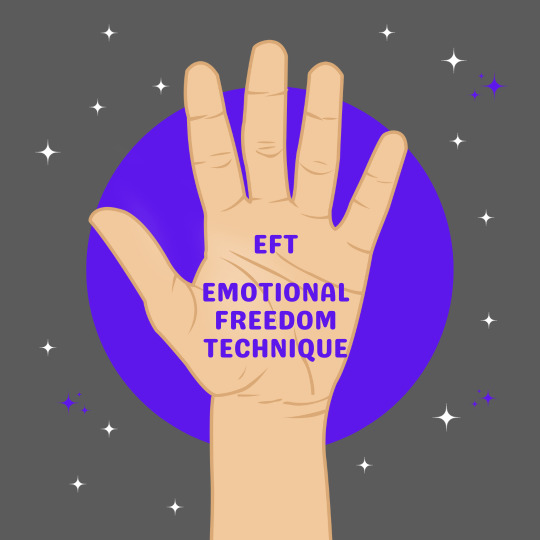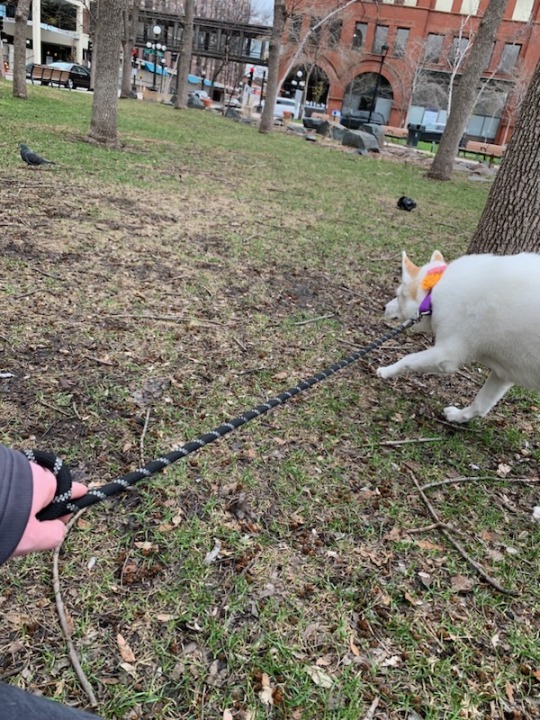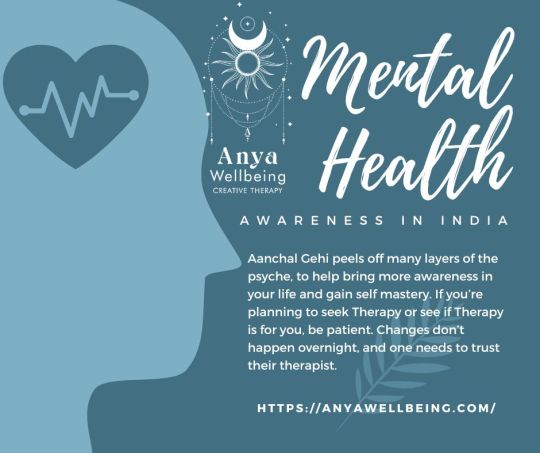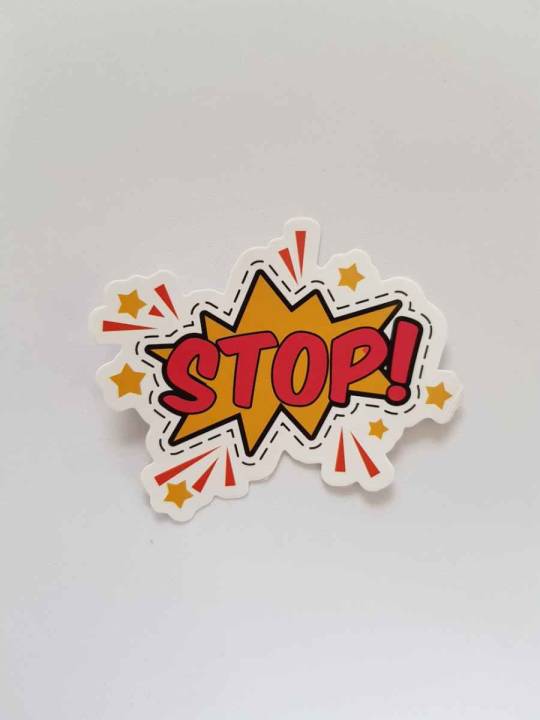#anxiety management
Text
Yesterday I felt myself spiraling into an anxiety attack (I'm prone to them, but it's been several months since my last one) while I was at home with my kids. To stave it off until my hubby returned from work (just having him around calms me), I did two things:
Scrolled through @urban-trek-thru-middle-earth's blog for pictures of Karl Urban;
Re-read @scyllas-revenge's Eomer x OC fic, "Where I Am Needed Most".
Both things helped make me feel better!
Never underestimate the comfort your blog/writing/artwork can bring to someone struggling. Blorbos and the fanwork created for them are powerful support tools. You never know whom your fic/art/gifs/pics might be helping, so keep them coming!
So special thanks to UTTME and Scylla, who are the best at what they do. <3
And bless Karl Urban/Eomer, just for being distractingly amazing.

#fanfiction matters#mutuals appreciation#anxiety#lotr#eomer#karl urban#sotwk personal#mental health#coping#anxiety management#eomer fanfiction#eomer x oc
35 notes
·
View notes
Text
EFT Tapping: A Powerful Technique for Emotional Healing
Shaina Tranquilino
November 4, 2023

Stress, anxiety, and emotional turmoil have become an integral part of our lives. We often find ourselves struggling to cope with overwhelming emotions and negative beliefs that hinder our personal growth and well-being. However, there is a powerful technique called Emotional Freedom Techniques (EFT) tapping that can help us release these emotional blockages and experience profound healing.
So, what exactly is EFT tapping? Developed in the 1990s by Gary Craig, EFT tapping combines elements of traditional Chinese medicine and modern psychology to address emotional issues. It involves gentle tapping on specific acupressure points on the body while focusing on the negative emotion or belief we want to overcome.
The rationale behind EFT tapping lies in the concept of energy meridians in our body. According to ancient Chinese medicine, disruptions or imbalances in our energy flow lead to various physical and emotional ailments. By stimulating specific acupressure points through tapping, we aim to restore the balance of energy flow and alleviate emotional distress.
The process of EFT tapping begins with identifying a specific issue or problem that causes emotional distress. This could be anything from anxiety, phobias, trauma, limiting beliefs, or even physical pain associated with emotional triggers. Once identified, we rate the intensity of this issue on a scale from 0-10.
Next, we formulate a setup statement that acknowledges the problem while affirming self-acceptance and unconditional love towards ourselves. For example, if dealing with anxiety about public speaking, one might say "Even though I feel anxious when speaking in public, I deeply and completely accept myself."
Then comes the actual tapping phase where we gently tap on specific acupressure points while repeating statements related to the issue at hand. These points include the top of the head (crown), eyebrows (beginning of eyebrows near bridge of the nose), side of the eyes, under the eyes, under the nose, chin (just below the lip), collarbone (where it meets sternum), and under the arm (about 4 inches below armpit). This tapping sequence is repeated multiple times while focusing on the problem.
As we tap through these points, we might experience a range of emotions. Some people report feeling relief almost immediately, while others may notice a shift in their emotional state after several rounds of tapping. It's important to pay attention to any changes that occur during this process.
The final step involves reevaluating the intensity of our issue and rating it again on a scale from 0-10. Ideally, we should aim for a significant decrease in its intensity or even complete resolution. If there is still some lingering distress, we can repeat the tapping process with slight modifications until we achieve satisfactory results.
EFT tapping has gained popularity due to its effectiveness in addressing various emotional issues. Scientific research and clinical studies have shown promising results in reducing anxiety, phobias, post-traumatic stress disorder (PTSD), depression, cravings, and chronic pain.
One reason for its success lies in EFT's ability to target both the mind and body simultaneously. By combining physical stimulation of acupressure points with cognitive reframing of negative beliefs, EFT taps into the power of neuroplasticity – our brain's ability to adapt and change – allowing us to create new neural pathways and release old patterns that no longer serve us.
Moreover, EFT tapping is a self-help technique that anyone can learn and practice without requiring expensive equipment or professional guidance. While working with an experienced practitioner can enhance the experience, individuals can also benefit from learning and applying EFT tapping on their own.
Emotional Freedom Techniques (EFT) tapping offers a unique approach to emotional healing by integrating ancient wisdom with modern psychology. Its simplicity and effectiveness make it a valuable tool for anyone seeking relief from emotional distress, personal growth, and overall well-being. So why not give it a try and tap into the power of your emotions for profound healing?
#EFT#EFT Tapping#Emotional healing#self care#mind body connection#energy healing#stress relief#anxiety management#wellness journey#mental health awareness
13 notes
·
View notes
Text
Anxiety Brain Fog and Tips to Defeat it!
Hey-hi! I’m back again to chat about yet another aspect of anxiety! Anxiety brain fog… Anxiety brain fog can happen when a person is feeling anxious and it causes difficulty thinking clearly/concentrating. It’s common to experience brain fog when dealing with stressful situations, or while an individual experiences high stress in general. So, why does anxiety cause brain fog? Well, it typically happens because anxiety takes up a lot of mental resources. This makes it so people need to use more energy while trying to focus on anything other than that anxiety, which is why it makes it so difficult to concentrate or think clearly.
Symptoms of anxiety brain fog include:
Fatigue
An inability to organize thoughts or activities performed
Feeling confused or “spaced out”
Being easily distracted
Forgetfulness, or a constant loss of your train of thought
Having difficulty finding the right words
Processing thoughts slower than usual
Forgetting about a task you need to complete
Needing more time to complete basic tasks
So basically, anxiety brain fog creates a forgetful mental state affected by your anxiety. The more anxious you get, the harder it becomes to focus. It usually happens when you go to do something that you know makes you anxious, and it makes preparing for that task much harder than it needs to be. There are other causes for anxiety brain fog, meaning things that can make it more likely to affect you. These are:
Neurological conditions, like head injuries or dementia.
Some chronic illnesses
Dehydration, hunger, or vitamin deficiencies
Drugs and alcohol
Certain medications, like chemotherapy or mood stabilizers.
So the gist of the situation is, if it isn’t anxiety induced then you should do your best to take good care of yourself and if that doesn’t help, seek out medical attention that could provide better answers for your condition.
Now, since the brain fog is a symptom and not a medical diagnosis there is no treatment for it that I am aware of. Though, managing the anxiety or the conditions causing the brain fog may help. I’m no medical professional or therapist, but as a fellow struggler of anxious tendencies, I happen to have a few tips to help you along the way.
My tips:
1. Make a checklist and actively run through it before heading out to ensure you don’t stray off track.
2. Try to prepare ahead of time, or leave the things you need near the door where you can see them. Sometimes visual cues can help to re-spark your memory and clear the fog enough to set you back on the right path.
3. Work on methods to slow or calm your anxiety. Giving your brain less to focus on can help redirect your attention towards what you need, instead of what you’re afraid of or anxious about.
The tips I mentioned above are my personal methods of clearing, or at the very least, working through my own anxiety brain fog. I hope this information helps you find your own path to victory VS the foggy brain feels <3
Unfortunately, that’s all I have for you today, but for those of you who have your own tips for working through anxiety brain fog, I’d love to hear about them and how they help you in the comments or tags! Sharing is caring!
#anxeity#anxiety tips#amwriting#social anxiety#anxiety is a bitch#anxiety management#anxiety hacks#tips and tricks#anxiety help#anxiety problems#mental heath awareness#TOF
21 notes
·
View notes
Text
“the body keeps the score,” well bitch I’d like a recount
#evie’s jeevies#cw anxiety#mental health memes#mental health#ocd memes#ocd posting#anxiety memes#anxiety management#physical anxiety#pure ocd#therapy memes
98 notes
·
View notes
Text
Soothing Sunday: Separate Yourself From Work
I don’t think anyone looks forward to the end of the weekend, or of a vacation. The last day before resuming the work schedules that leave so little space for ourselves can become increasingly stressful and for some, anxiety seems to bloom like poisonous flowers.
The way we allow our jobs to invade our homes is one of the worst habits we have in the US. It taints the limited space we have for…

View On WordPress
#anxiety management#boundaries#Mental Health#self-care#self-soothing#soothing#stress management#work-life balance
2 notes
·
View notes
Text
Coping with anxiety - squeeze technique
Trying to talk yourself "out of anxiety" is not useful. Why?
Because during an anxiety episode (like a panic attack) your brain is focused on surviving. Just surviving. So, neurologically speaking all of the areas that are not involved in the flight/fight/freeze response are momentarily "out of order", this include the areas of logical thinking. (Cool ah?)
So here's an easy exercise to try and calm your body's response.
We're going to trigger the parasympathetic system, and by doing so we'll try to tell the body that we're safe and we don't need to run/fight/play dead...but we need our rational thoughts back.
Start slowly, you can be sit or standing, it's ok anyway.
Cross your arms, keep them a litte bit far from your chest.
Keep a firm grip and just start squeezing up your arms.
Move slowly towards the shoulders, and reach your neck.
Keep squeezing, a little bit more delicately with both hands on the back of your neck, stay there for few minutes, you'll probably find some tightness there*.
Then come back down towards the wrists (one arm at the time if you prefer).
Go back to the neck again, please try to keep doing it slowly and focus on the pressure. This'll help you to calm your body and to bring you back to the present moment, telling your brain that something else is going on now, other than "anxiety".
Disclaimer: This is not something ment to dismiss a future analysis of the reason why you're feeling anxious. This is just a way to calm down. Don't ignore your feelings, but practice the ability to "take a step back" from them after you felt 'em. This'll allow a better analysis with a functional mental state/space.
*You're stimulating the part of your spinal chord where the vague nerve pass (it's a long ass nerve lol)...which is one of the main component of the parasympathetic system. Which is the thing that allows this trick to work.
#psychology#psychologist#mental health#mental health support#therapy#healing#self help#anxiety#dealing with feelings#dealing with anxiety#anxiety management#panic attack#anxiety attack#neuroscience
68 notes
·
View notes
Text
when i’m anxious i like to picture my mind as an old creaky house and all of my anxious thoughts are the little sootsprites from studio ghibli and rupaul is there with a broom and he’s chasing them around my mind house yelling, “now why won’t you leave this poor girl alone?!”*whack* “hasn’t she worried enough?!”*whack* *whack*
thanks rupaul.
5 notes
·
View notes
Text
Starting at a new University tomorrow as a transfer student.
I plan to be here for 2-5 years; finish off my Bachelors, then Masters if all goes accordingly.
It's both exciting and anxiety inducing. I haven't been around this many people, without company, in a long while. I know the campus will start to feel like a second home soon enough; it's just going to be a bit of an adjustment period.
I'm afraid, but I know I'll be fine. I feel more prepared for university now than I ever had before. I'm more confident in myself and in my own life goals.
It will be strange running into and interacting with so many young adults. I'll need to remember that everyone has a different life experience and brings a unique set of skills and mindset to the table.
Not better, just different. Different, not less.
I'm more excited to interact with professors and older students. Maybe actually enjoy "campus life" a little bit here and there with the many events and group bonding stuff they have to offer.
I'm hoping the transition period will prove to be smoother than I'm anticipating. I'll have pain meds for if my knee starts acting up mid-way through the day.
I must be careful about how I wear my heart on my sleeve. Not everyone is friendly, and not everyone wants what is best for me. Be open to friendship and opportunities, but if it sucks, hit da bricks.
#college stress#university thoughts#personal#anxiety management#anxiety reminders#future plans#if it sucks hit da brick#let's get this bread
2 notes
·
View notes
Text
I haven’t been feeling great lately. As a new(ish) therapist whose practice is picking up I’ve been... overwhelmed by the responsibility that comes with it, you know? I’m only 28 and sometimes I feel utterly unprepared to tackle whatever a workday might bring. Some days (like today) I wanna scream something along the lines of “whoever trusted me with anyone’s mental health? I’m just a kid who grew too much” or “how did 5 years of reading textbooks and writing a few papers prepare me for this?”.
But then, whenever a patient comes to me and shares a deep secret they’ve been carrying all their lives because I made them feel safe, or another manages to overcome their decades-old panic attacks, I take it as a clue I’m on the right path. Hopefully, this will get easier soon. Yet I’m starting to come to terms with the possibility that it won’t? Maybe this will be like everything else in life and just. fluctuate. Because this is the same way I still feel about my kid, some days. And the more I work and learn, the more I realize we’re all kids in grown-up bodies anyway, aren’t we? All any of us can do is be present, and do our best.
9 notes
·
View notes
Text
Back at It

View On WordPress
2 notes
·
View notes
Text

"Childhood Trauma Signs."
Traumatic experiences can initiate strong emotions and physical reactions that can persist long after the event. Children may feel terror, helplessness, or fear, as well as physiological reactions such as heart pounding, vomiting, or loss of bowel or bladder control. You might have difficulties trusting, low self-esteem, fears of being judged, constant attempts to please, outbursts of frustration, or social anxiety symptoms that won't let up. Can childhood trauma be healed? Being mentally healthy during childhood means reaching developmental and emotional milestones and learning healthy social skills and how to cope when there are problems. Mentally healthy children have a positive quality of life and can function well at home, in school, and in their communities. Things that can help keep children and young people mentally well include: being in good physical health, eating a balanced diet and getting regular exercise, having time and freedom to play, indoors and outdoors, being part of a family that gets along well most of the time. Anya Wellbeing is a Creative Therapy Centre that promotes the Expressive Arts for Mental Health and Alternative Methods for Holistic Wellness by using a variety of research-based treatment methods and hope to bring the joy of creativity in healing.
#how to improve emotional well being#anxiety and depression treatment#expressive arts therapy#mental health awareness in india#anxiety management#how to control your anxiety#childhood trauma#childhood trauma signs#post traumatic stress disorder symptoms#post traumatic stress disorder treatment#panic attacks treatment#panic attacks cure#panic attacks remedies#trauma treatment#music therapy in depression
6 notes
·
View notes
Text
Hello everyone!
Today I want to talk about anxiety and little ways to help manage it.
You’re likely here because you are like me, and your anxiety gets the best of you sometimes. Welcome! First off, know that you are not alone. Anxiety plagues many people across the world. But thankfully there are ways to manage it, short-term and long term.
Some great ways to calm down anxiety while right in the midst of it is breathing control. The best method I have found is to breathe in counting to 5 in your head, breathing out counting to 5 in your head, then holding and breathing for 5 more seconds. Repeat as long as you need. You can adjust the time as you feel fits best for you.
Another great way is exercise, like going for a walk in the fresh air, but for some that doesn’t always help. Your mind may have too much time to wonder, but you can always try watching some yoga videos that you can follow along or even some very simple Pilates. Both great for helping you calm down.
Music is another great tool, calming music or even just getting up and dancing around to your favorite song.
Taking a warm bath or shower can also be very calming.
Teas are a great way to help calm, ones like Chamomile, or even some lavender tea by Yogi is a great choice. Many teas have L-Theanine which is a great amino acid that actual promotes relaxation and sleep. And if tea isn’t your thing, you can actually buy it in pill form from your nearest vitamin isle.
Speaking of dietary supplements, 5-HTP is also a great one, it can raise your serotonin levels in your brain. It’s a great mood regulator. BUT WARNING, ALWAYS talk to your Dr. first before taking ANY dietary supplement in case it may interfere with anything you may already be taking. I am not a doctor so always get the opinion of a doctor first.
Now some other great things to do are put on a calm happy movie that you enjoy, or a youtube video that you find comforting. grab your favorite cozy blanket, I find weighted ones to be very beneficial, and curl up and watch.
Other great ways is managing your diet. There are a ton of great foods that can help with anxiety, and an equal amount that can worsen your anxiety.
Skip the sugary treats and overly processed foods, even if they can be comforting, they could be making things worse. Skip the caffeine and opt for herbal teas too.
Great foods for anxiety are turkey, salmon, oats, avocado, blueberries, bananas, brown rice, and if you want something more sweet, dark chocolate is great too. I find 70-85% to be the most tolerable flavor wise.
2 notes
·
View notes
Text
Top 5 Differences between Anxiety and Depression Management and How to Manage Them
Anxiety and Depression management is very important for a successful and happy life; it can really change the way a person feels. Let us understand Anxiety and Depression:
What is Anxiety?
Anxiety, a common response to stress, might be beneficial sometimes. However, for certain individuals, too much anxiety can interfere with their daily tasks and general health state. Symptoms frequently observed include excessive worry or fear about potential future events, a common feeling of restlessness, and quickly becoming annoyed or irritated over small matters.
What is Depression?
Depression means feeling sad and losing interest or joy in things you do. It affects the way someone thinks, feels, and handles their daily life activities. Symptoms might include feelings like thinking you are not worth much or having guilt, feeling very tired and without energy, getting upset or agitated quickly, eating more or less than usual, problems with sleeping and having a hard time focusing your attention.
Now, we will examine the five primary distinctions between handling these two psychological health situations.

1. Understanding the Root Causes
Understanding the main cause behind anxiety and depression is important because they are different. Anxiety happens from too much worry or fear about events that will happen in the future. On the other hand, depression might come from bad experiences before or a chemical imbalance in our brains. Knowing the cause can help you handle your symptoms right.
2. Treatment Approaches
Therapy and medication can assist with both situations, but the types of treatment or drugs may differ sometimes. Take an anxiety disorder as an example; it is common to suggest cognitive-behavioral therapy that aims to change negative thought habits. Treating people for depression could work better with interpersonal methods, as it focuses on issues related to relationships and social support.
3. Coping Strategies
To handle anxiety and depression, having strong coping strategies is very important. People who experience anxious feelings might use methods like breathing deeply or doing meditation to help them relax. People who are feeling depressed may discover that doing some physical activity or taking part in creative things can help to make them feel better. It is very important for you to find coping methods for these feelings that suit your personal circumstances.
4. Social Support
Someone with anxiety may need strong social backing that provides reassurance and encouragement when they feel anxious or uneasy. For a person who has depression, they might need help with everyday activities or arranging to get services for mental health. It is helpful to have people around like friends or family who can offer support when dealing with anxiety and depression.
5. Self-Care Practices
Finally, we think about including habits of taking care of ourselves in our everyday life to help with feelings of worry and sadness. This could include making sure to get enough sleep, eating a variety of healthy foods, doing physical activities often or using techniques such as giving complete attention (mindfulness) and ways to relax. Looking after your body and feelings might help lessen worry or sadness symptoms, as well as make overall mental wellness better.
Conclusion
Understanding where your emotions come from, looking for the right Anxiety Management and using good ways to deal with them is very important in controlling both conditions to have better health. If you know the reason behind your anxiety or sadness, discover how to treat each issue properly, and apply strong strategies against it, you will be able to handle both issues well and make your health better. Call or visit serenity psychiatry today.
1 note
·
View note
Text
Soothing Sunday: Recognizing the Triggers
Knowing how to self-soothe is an important skill for managing life, whether you have deep trauma or not. However, we need to be alert to the things that cause us to rely on self-soothing. Whether we call these “triggers” or not, the fact is that the emotions we experience sometimes are there to warn us of dangers. If we ignore all of these and simply use self-soothing to survive constantly, we…

View On WordPress
#anxiety#anxiety management#anxiety reduction#Mental Health#self-soothing#soothing#stress management#stress reduction#triggers
2 notes
·
View notes
Text
Do you ever feel like you’re drowning in a sea of worry, unable to escape the relentless grip of anxiety? You’re not alone. Anxiety is a common experience for many people, but when it starts to interfere with your daily life, it’s essential to have strategies in place to manage it effectively.
1 note
·
View note